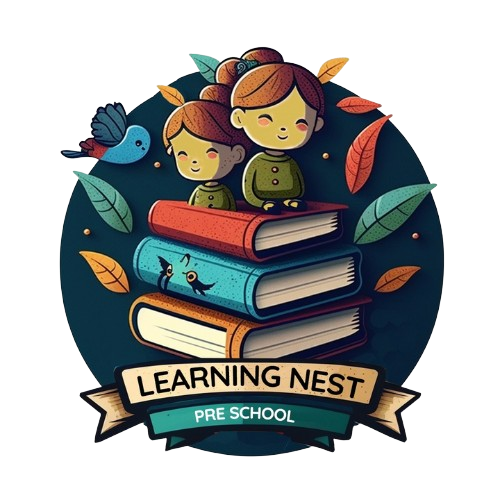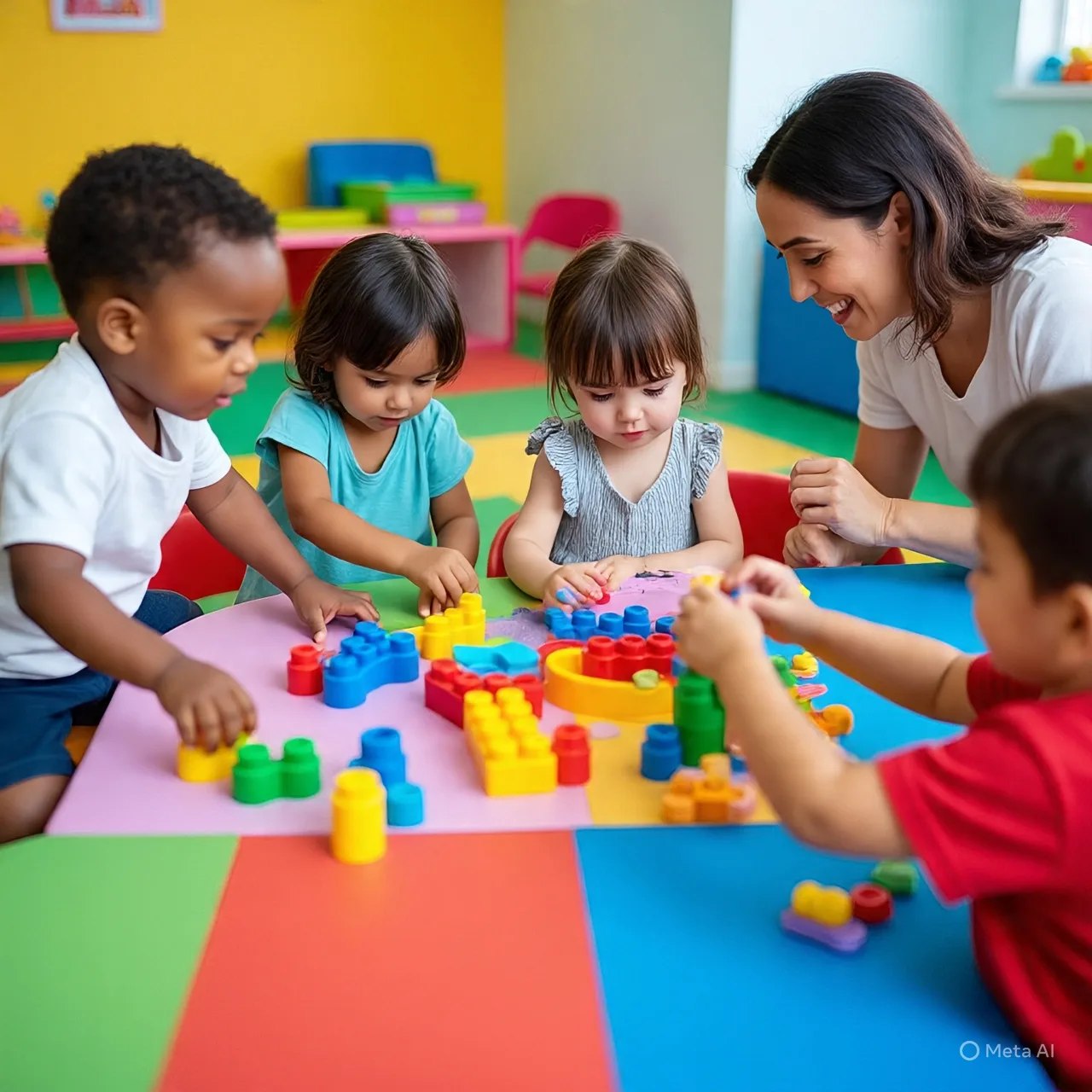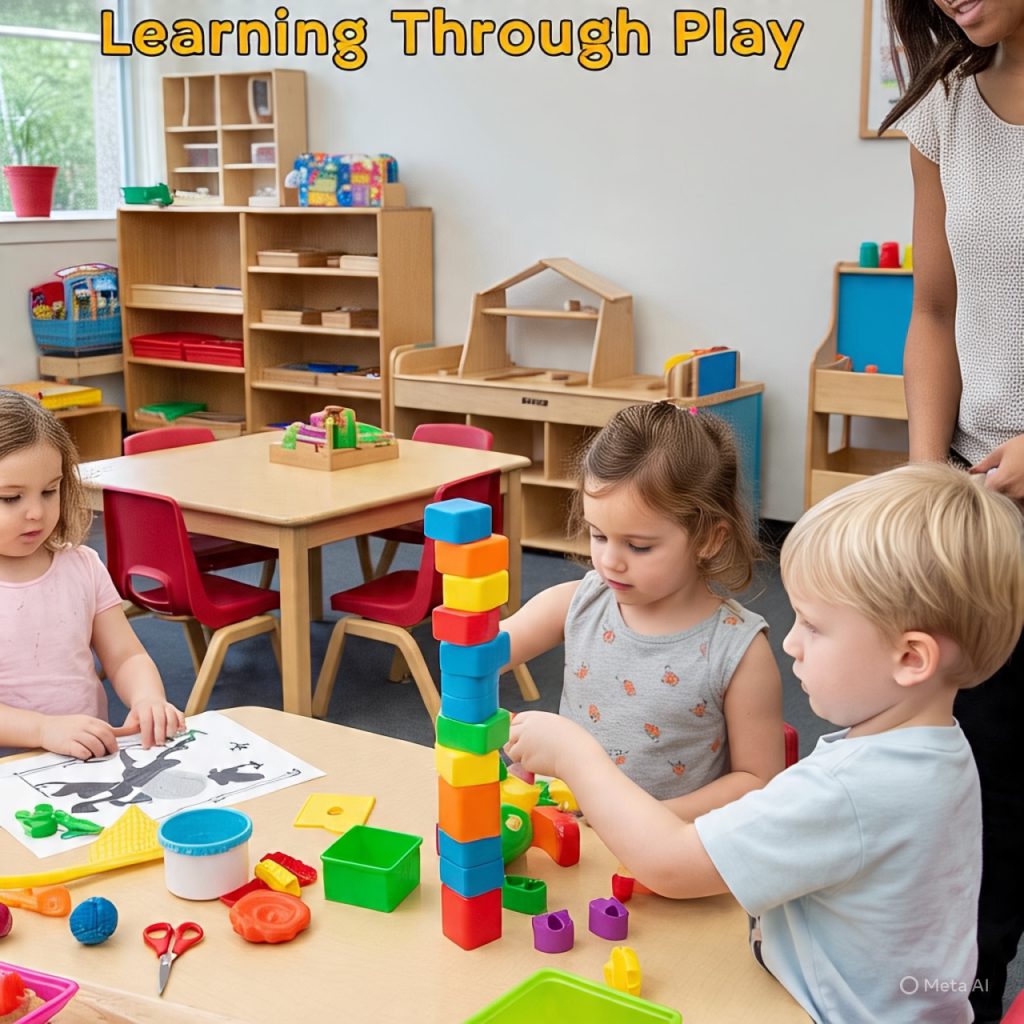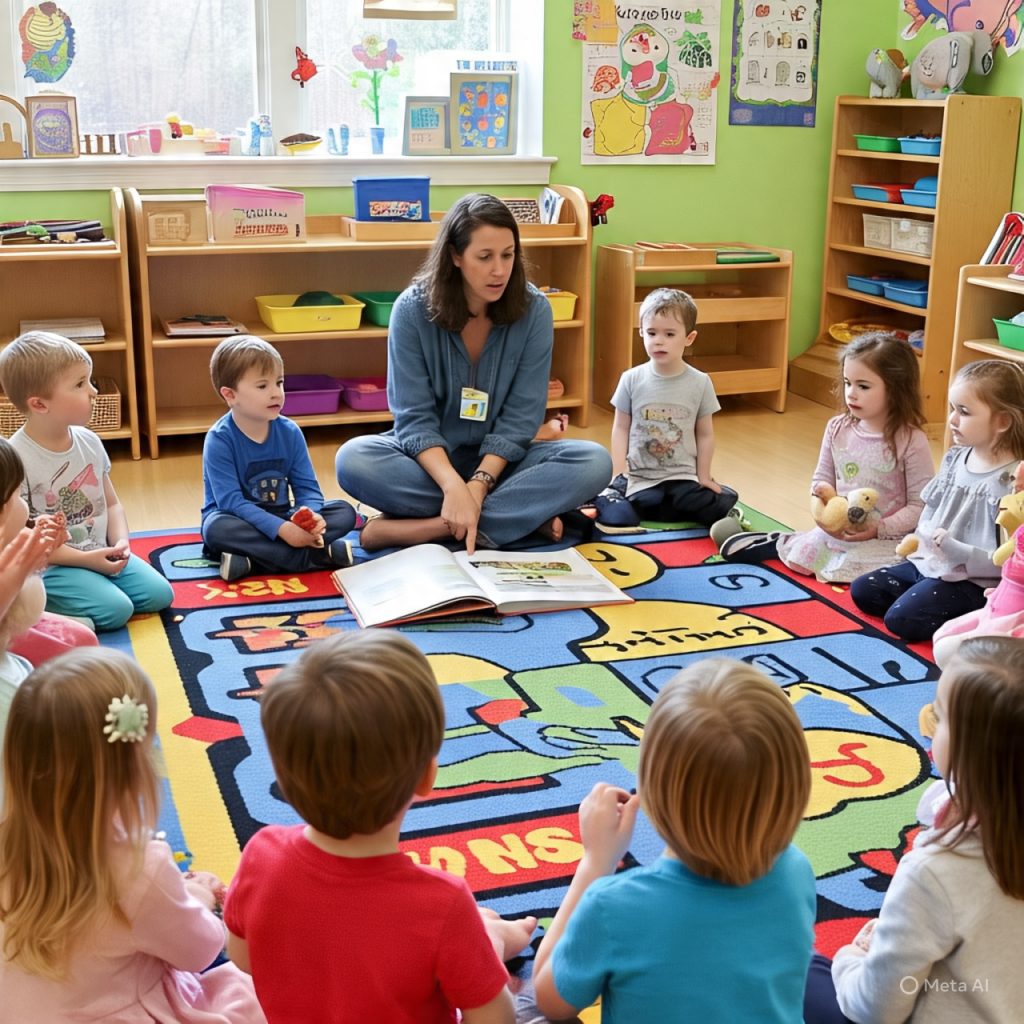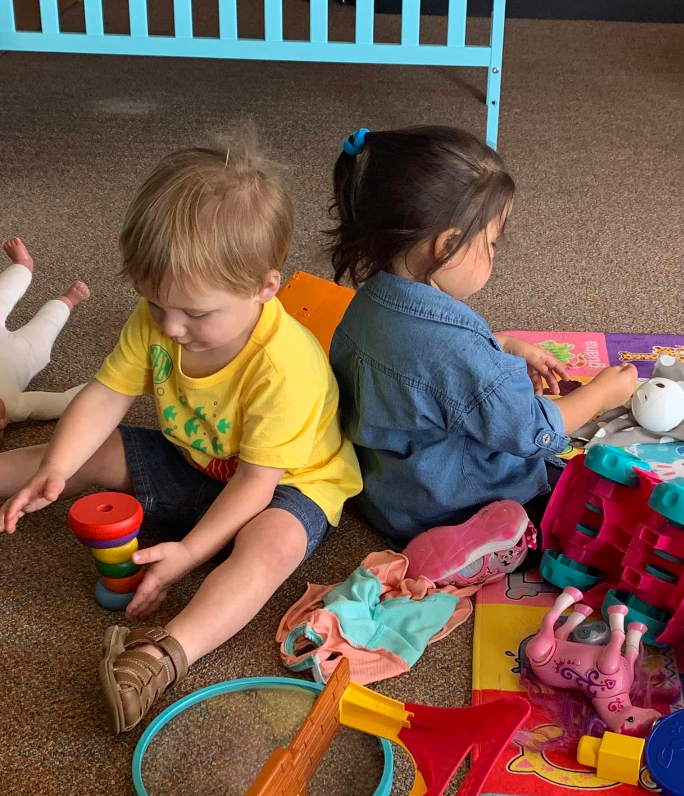Introduction
Language is the key to learning — it helps children express thoughts, connect with others, and understand the world around them. A quality day care program plays a powerful role in developing these early communication skills. At Learning Nest Preschool & Day Care, we create a language-rich environment where every child’s voice is heard, valued, and encouraged to grow.
1. The Importance of Early Communication
The ability to talk and listen forms the foundation for all future learning. In the early years, children’s brains are like sponges — they absorb words, tone, and gestures from the world around them. A nurturing child care setting gives children daily opportunities to communicate naturally through play, songs, and stories.
2. Building Vocabulary Through Play
Playtime is one of the best ways to build language skills. Whether it’s pretending to cook, building towers, or role-playing as superheroes, children talk, negotiate, and describe what they’re doing. In our day care, teachers join these conversations to introduce new words and guide children in using language meaningfully.
3. Storytime: The Magic of Words
Storytime is more than just reading aloud — it’s a gateway to imagination and understanding. Our teachers bring stories to life through expressive reading, questions, and discussion. These moments build listening skills, comprehension, and curiosity — all essential for early literacy and school readiness.
4. Encouraging Self-Expression
Children have big ideas — and day care gives them a safe space to share them. Whether through conversation, music, art, or drama, we encourage every child to express feelings and thoughts in their own way. This freedom to communicate boosts confidence and emotional development.
5. The Role of Teachers in Language Growth
Teachers are language models in every interaction. At Learning Nest, our caregivers speak clearly, use positive language, and listen with patience. They expand conversations with open-ended questions like “What do you think?” or “How did that happen?” — helping children build reasoning and sentence structure naturally.
6. Peer Interaction and Social Communication
In day care, children learn to take turns talking, listen to others, and respond appropriately — the core of communication. Group activities and circle time help children practice conversation skills, learn new words, and understand social cues like tone and body language.
Conclusion & Call to Action
Strong language and communication skills are the building blocks of learning, confidence, and connection. At Learning Nest Preschool & Day Care, we create a fun, interactive, and talk-friendly environment that helps children become curious learners and confident communicators. Searching for a nurturing day care in El Dorado AR that helps your child’s language blossom? Visit Learning Nest today and watch their words come to life!


